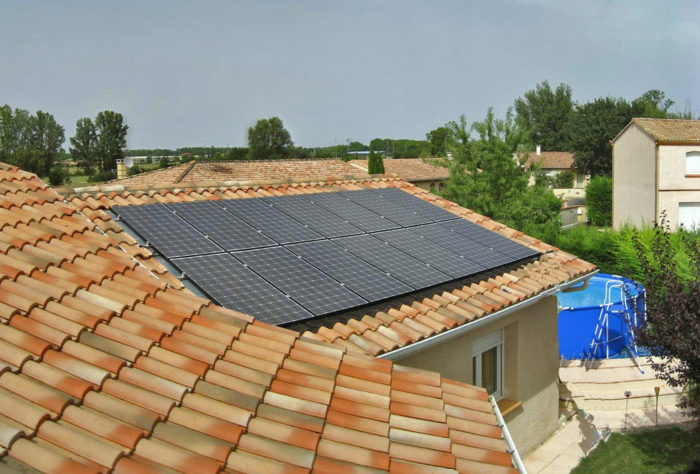
Image Credit: David Trebosc via Flickr
Los Angeles County and two private lending partners have been sued by attorneys representing homeowners who say they were talked into taking out loans for energy upgrades but can’t afford them and now risk losing their homes to foreclosure.
The Los Angeles Times says the loans were used to pay for solar panels and other efficiency improvements under the Property Assessed Clean Energy, or PACE, program. Loans are repaid with an assessment added to property tax bills, but here the lawsuits claim both the county and the lenders charged inflated interest rates and ignored rules designed to protect borrowers from predatory lending.
The two lenders are Renew Financial, which didn’t offer a comment, and Renovate America, which said it found no merit to the complaints. Los Angeles County didn’t respond to a request for comment.
The report didn’t say how many separate claims have been filed, but the complaints say the loans amount to financial elder abuse. Borrowers are “living hand-to-mouth to hold onto their homes, fearful of what is yet to come,” the lawsuits allege. Many borrowers have low incomes, are older, or don’t have English as their native language.
Lawyers want class-action status for borrowers who took loans in a three-year period ending last month. The complaints ask that loans be canceled and that any money homeowners have paid on the loans be returned.
“We can’t keep up with the number of complaints about this program,” Jennifer H. Sperling, an attorney with Bet Tzedek, told The Times. “This is a systemic problem.”
Rules were toughened in California
Lenders said they checked whether borrowers had previous bankruptcies on file, or missed mortgage payments in the past, but based loans mostly on home equity without checking on how much income borrowers had. Lenders are now required to ask about income and make an effort to confirm that borrowers would be able to repay the loans.
Lenders also are now required to talk with homeowners by phone before they sign the loan to make sure they understand the terms.
But some homeowners say those protections were not in place when they decided to borrow. The newspaper interviewed Reginald Nemore, described as a disabled, 58-year-old former bus driver who took out a loan from Renovate America for solar panels and attic insulation two years ago. Nemore claims that the contractor who did the work got him to sign for the loan with a smartphone, did not explain how much he would have to repay, and promised a $7,000 government check that never materialized.
“If they had let me know from Day One this is what [you are] going to get into … there is no way I would have signed,” he said.
Nor did Nemore apparently understand that failing to make payments could lead to foreclosure. Income for Nemore and his wife totals $2,475 in Social Security disability a month, while payments on his PACE loan are $240 a month for 25 years.
Although foreclosure is a possibility, both of the lenders named in the suits have said in the past they have never foreclosed on a borrower for non-payment of a PACE loan.
PACE financing has friends and foes
Proponents of PACE financing point to billions of dollars worth of energy efficiency improvements it has made possible. In a guest blog published last year, Jim Barrett of the American Council for an Energy-Efficiency Economy said PACE loans have paid for $3.3 billion in energy upgrades since the program began in 2009.
Barrett was responding to an article critical of the program published in The Wall Street Journal, which, he said, compared PACE to the subprime mortgage crisis that led to a crippling recession in 2008.
“To date, not a single home has been put into foreclosure because of unpaid PACE assessments,” Barrett wrote. “And less than 1% of homes with PACE assessments have gone into foreclosure for any other reason, a lower rate than the market average. There is not even a shadow of the subprime crisis to be seen.”
PACE loans, however, have raised concerns with both Fannie Mae and Freddie Mac, which insure residential mortgages. The Mortgage Bankers Association also has sought changes in the program, and last December, the Federal Housing Administration said it would stop insuring new mortgages on homes with PACE loans because of concerns of inadequate consumer protections for borrowers.
Weekly Newsletter
Get building science and energy efficiency advice, plus special offers, in your inbox.














0 Comments
Log in or create an account to post a comment.
Sign up Log in